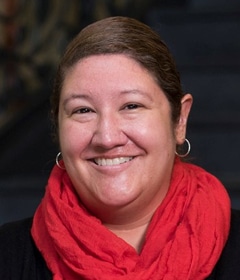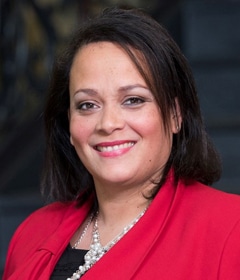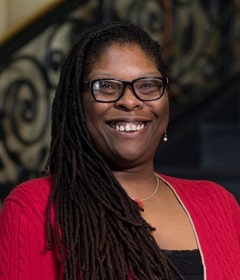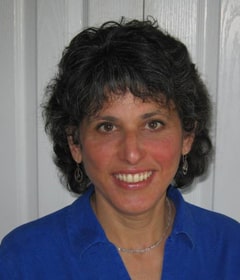Cultivating a Campus Community that is Equitable and Inclusive
In 2017 a freedom of speech incident involving a student organization occurred at Northern Illinois University (NIU). Staff in the Office of Academic Diversity, Equity and Inclusion, Student Involvement & Leadership Development, and the Division of Student Affairs worked with the student organization leaders and a group of concerned students to address a racially charged incident. One of the recommendations resulting from multiple dialogues was to engage in candid conversations about differences and understanding using peace circles and conflict resolution. The initial result was a student-led campus dialogue that drew over 250 participants to a Conversations on Diversity + Equity (CODE) Workshop. Upon seeing the impact of the first event, student leaders urged that CODE workshops become a requirement for the executive board members of all recognized student organizations. Throughout the Fall 2017 semester, approximately 60 workshops were offered, resulting in 532 students (representing 256 student organizations) participating in CODE workshops. Furthermore, of the 304 recognized student organizations, 235 met the requirement of having two executive board members participate in a CODE workshop. These workshops require students to reflect and think critically about the identities they hold and how the intersectionality of their identities show up within student experiences on campus. In addition, students process and identify ways in which forming coalitions helps to dismantle systems of oppression and power and to eliminate barriers to access and equity at NIU and the surrounding community. Peace circles were used to engage participants in brainstorming and developing action plans to form coalitions and support one another.
What is CODE?
CODE is designed to engage students, faculty, and staff in learning about the cultural differences that shape our world. The main goal of the program is to create spaces for participants to explore complex aspects of the diversity and equity framework. The ultimate outcome of these experiences for participants is to work toward an inclusive campus community where everyone respects the value and dignity of all of its members.
The CODE program consists of four workshops that engage students through an established curriculum. The semistructured and highly interactive curriculum design includes activities that utilize components of successful intergroup contact to provide a neutral environment for open discussions, collaborative goals setting, and intergroup cooperation. Empirical evidence shows that diversity education workshops in higher education are effective in reducing racial bias when using these methods.
CODE provides participants with the opportunity to build their cultural competence along a continuum of learning opportunities to help them shape a deeper understanding of themselves and their interactions with others and develop skills to prepare them to live and work in an increasingly diverse society.
CODE Workshops
The following highlights the various types of workshops that are offered to the campus community.
CODE One: Situating the Self
Who Am I? This workshop introduces opportunities for participants to explore their own unique cultural identities and the identities of others. Through a series of interactive exercises, they will learn general diversity terms and concepts, share the personal stories that frame their values related to cultural difference and identify the multitude of ways that their identities shape their understanding of the world.
CODE Two: Power Dynamics of Difference
How Do We Relate? This workshop invites participants to cultivate a self-reflective awareness of their identities, personal beliefs, and values related to cultural and social inequalities. Participants develop critical thinking skills and knowledge regarding how privilege and oppression shape their experiences and perspectives in relationships and communities.
CODE Three: Building Community
Who Are We? This workshop focuses on building dialogue. Workshop participants learn how to effectively engage in conversations and resolve conflicts about issues that impact the way they relate to people with different experiences, histories, beliefs, traditions, and values different from their own.
CODE Four: Engaging Systems of Oppressions
This workshop exposes dedicated individuals to the lifelong commitment necessary for social justice work. Participants work with the Office of Academic Diversity, Equity, and Inclusion and construct a plan that will engage the individual with social justice education readings and work, including facilitation of workshops and planning of conversation workshops around campus.
CODE Five: Customized Workshop
In addition to the four CODE sessions highlighted here, CODE workshops are also customized to meet the larger needs of the campus community. The customized sessions discuss areas such as cultural competence, inclusion, equity, bias, and microaggressions with a specialized lens to meet the needs of student organizations, students within the classroom, staff, and faculty.
Goals & Intended Learning Outcomes for Student Organizations
- Articulate what coalition building is
- Identify one benefit of coalition building
- Identify one way student organizations can support one another
- Reflect on personal experiences of inclusion
- Develop the necessary interpersonal skills to work across cultural differences
- Learn about the various dimensions of individual and group cultural identity
- Identify and address issues of social inequality and systemic barriers
Framework
Diane Goodman’s cultural competence for equity and inclusion model guides the structure of the curriculum. Going beyond just examining cultural differences, Goodman’s framework utilizes an intersectional perspective to address the larger dynamics of power, privilege, and marginalization across different social identities and forms of oppression. Cultural competence for equity and inclusion requires a range of awareness, knowledge, and skills. The five core interrelated competences in this model are:
- Self-awareness
- Understanding and valuing others
- Understanding societal inequities
- Skills to interact effectively with diverse people in different contexts, and
- Skills to foster transformation toward equity and inclusion (individually, interpersonally, institutionally, and societally)
Within each of these five main core competencies are some key subcompetencies. The model can be applied across a variety of contexts and purposes.
How This Work is Accomplished
In light of the insurmountable work of this project, CODE needed to expand its facilitation capacities to accommodate workshop requests and overall facilitation needs. The response was to create an institute to educate NIU’s faculty, staff, and graduate students on how to successfully facilitate the curriculum. The institute consists of two full days of unpacking complex conversations, identifying and responding to participant resistance, discussing critical race theory, and creating a space for the facilitators to understand themselves and others in relation to power dynamics, societal structures, oppression, and privilege.
During the first institute, in 2017, 50 volunteers were recruited to become CODE facilitators. These facilitators, who work in various roles across campus, came together to support diversity and inclusion efforts. Facilitators also participated in ongoing professional development opportunities to build their knowledge, skills, and competencies as facilitators. The facilitators worked in teams of two to lead the workshops and guide conversations for approximately 60 workshops.
Student organizations will complete the entire CODE workshop series in a four-year rotation. The series consists of understanding the power of coalition building and allyship, as well as identifying interpersonal and institutional barriers, including stereotyping and understanding systems of oppression. To date, CODE has wrapped up its second year, and data show a positive response to the workshops. The first year of CODE workshops, 2017–18, included 77% of student organizations completing participation. The second year, 2018–19, shows a significant improvement with nearly 95% of student organizations completing CODE workshop participation—nearly a 20% increase from the previous year. CODE facilitators also increased from 50 to 81 in the year.
Evidence of Program Impact
Throughout the duration of the CODE program, data were collected regarding participation rates. Participant evaluations and follow-up assessments indicate the long-term effectiveness of the program learning objectives. The following tables present a breakdown of these data.
Achievement of Intended Outcome
Given the scale, the mean ratings of the evaluation items indicate the workshops were effective in meeting the intended outcomes. Furthermore, approximately 20% of student participants (of the 209 surveyed) responded to a follow-up assessment administered two weeks after the initial workshop offerings, and 60% of the respondents indicated they have already taken action toward coalition building post-CODE workshops.
Next Steps
Student organization CODE workshops have been instituted as a requirement to remain in good standing with the university. The culture is shifting, and students recognize the value of these workshops. After its first year of implementation, a committee consisting of representatives of student affairs and academic affairs discussed the next steps for this program. Although the initial thought was to design the workshop in response to the racial incident, it was determined the program needs to be sustained as an opportunity to increase cultural competence and diversity leadership for student organizations.
In the second year, Northern Illinois University reduced the number of sessions offered to a total of 25 for the fiscal year. The majority of the workshops, 20, were offered in the fall semester, with the remainder being offered in the spring for newly recognized student organizations. Student organizations that did not meet the requirement that semester were also invited to participate the next semester. As previously indicated, over 90% of student organizations have participated in the CODE workshops.
Data show that student leaders expressed a desire to have a more challenging curriculum, so in the second year, we focused on how bias and the formation of stereotypes impact inclusion practices. We engaged in meaningful dialogue on how to address bias within student organizations by using case studies to unpack students’ own understanding of stereotyping and how stereotypes have impacted them personally or within their student organizations. The students openly acknowledged what they heard or believed about various social identities when prompted, for example, “When you think about ‘X’ identity, what comes to mind?”
Student leaders who attended the first year of CODE shared that they liked the candidness of the conversations and time spent reflecting on why stereotypes exist despite not believing in them personally. Many were surprised that they could individually identify stereotypes despite the fact that the only prompt offered to participants was to write down on postit notes what they believe, heard, or know about the identities displayed across the room. When the facilitators asked about the observations they had made, the participants noted how many negative thoughts were written by themselves and their peers. They engaged with each other to discuss why that was happening and asked about how they could interrupt the danger of stereotyping. Student organizations were then encouraged to exchange contact information and work together to garner organizational power in coalition building for a cause.
University leadership has made it a priority that all first-year students as well as faculty complete cultural competence education as an ongoing strategic effort. To effect organizational change, since many of the students are active with student organizations, the university will continue this focus to ensure the campus community is working together to embrace diversity and inclusion at NIU.
Recommendations for Practice
This leadership and programming effort can serve as a model for approaching how to engage student organizations in practicing cultural competence and inclusion through leadership development. The data have shown students predominately demonstrate an interest in having in-depth conversations and action-driven outcomes for diversity and inclusion. University leadership should consider how to build capacity to engage student organizations and include student leaders in the development of the program. University leadership should consider the goals and objectives, including the strategic planning process (short-term/long-term goals) and what accountability measures can be implemented. Cultural shifts take time; however, it is critical to employ consistency with the program and shift as needed once the implementation begins. The
university leadership should prepare for resistance by formulating ways to address the resistance ahead of time.
In implementing this campus program, leadership took the following steps:
- Determining the goals and outcomes for this project
- Planning for the short- and long-term programs
- Developing curriculum
- Building capacity—call for facilitators, education and knowledge development of facilitators, and scheduling of workshops
- Examining in place systems to ensure accountability for student organizations; micro- and macro-marketing and communication plan, registration process, follow-up communication, programming logistics for accessibility
- Evaluating workshops
- Assessing data per facilitator to provide adequate feedback about strengths and areas for growth in facilitation approach and engagement
- Reassessing and shifting goals and outcomes




